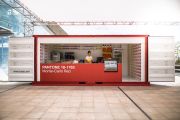
Chadstone owner Vicinity beats guidance as occupancy rates rise
Vicinity Centres’ strategy of investing in premium, destination malls such as Melbourne’s Chadstone and Sydney’s Chatswood Chase and selling non-core assets is bearing fruit.
The country’s second-biggest shopping centre owner beat its earnings guidance and forecast a pick-up in earnings in FY25 as it lifted occupancy to levels last seen before the pandemic.
Vicinity reported funds from operations (FFO) – or operating earnings – of 14.6¢ per security after saying in February that it would hit the “top end” of its guidance of between 14.1¢ and 14.5¢. Statutory profit more than doubled to $547.1 million.

For FY25, Vicinity forecast FFO of between 14.5¢ and 14.8¢, equal to normalised earnings growth of 2 per cent to 4 per cent when excluding the impact of one-off items including about $800 million of divestments.
Adjusted funds from operation – from which it pays 95 per cent to 100 per cent out in distributions – were forecast in a range of 12.3¢ to 12.6¢. Vicinity paid out 11.75¢ in FY24.
“We’ve executed our strategy set out 18 months ago to increase our exposure to premium assets, which have proven more resilient over time,” Mr Huddle told The Australian Financial Review.
This strategy included Vicinity acquiring a $420 million half-stake in Perth’s second-biggest mall Lakeside Joondalup from the Future Fund – a deal, brokered through CBRE, that it settled this week. Vicinity also acquired the management and development rights to the 96,000sq m mall from Lendlease, which owns the other 50 per cent of the mall via its unlisted Australian Prime Property Fund.
“Acquiring Lakeside Joondalup was a big outcome for us,” Mr Huddle said. Owning the management rights as well, he said, would allow Vicinity to unlock value in the mall, which generates almost $800 million in annual sales, but which has a higher vacancy rate and lower sales per square metre compared with the average across its portfolio.
The Perth acquisition followed Vicinity acquiring the remaining 49 per cent interest in Chatswood Chase in March for $307 million, a mall where it has opened a new fresh food and dining precinct and where it has commenced work to turn it into Sydney’s leading luxury shopping destination.
Alongside these acquisitions, Vicinity divested seven malls for $550 million, at a 9 per cent premium to book value, part of plans to divest a total of $800 million of non-core assets and recycle capital into its premium offerings.
While sales growth moderated in the second half of the year on the back of the cost-of-living crunch, Mr Huddle said income tax cuts, a tight employment market and interest rate relief “at some stage” would support sales growth and positive leasing spreads – the difference in rents between expiring and new rental agreements – in FY25.
“Leasing spreads were a positive 1.1 per cent over FY24, and we see around the same number in FY25. We see sales growing 2-3 per cent in FY25,” he said.
Another key performance indicator – occupancy rates – rose to 99.3 per cent, the highest level since before the pandemic. Occupancy at its CBD malls including Emporium Melbourne and Sydney’s Queen Victoria Building hit 99.6 per cent, higher than before the pandemic, demonstrating the resilience of CBD retail despite higher corresponding office vacancy rates.
Mr Huddle said around 400 million people passed through its malls in FY24, equating to about 91 per cent of pre-COVID foot traffic levels.
With population growth and limited new supply of retail underpinning a positive medium and long-term outlook for the sector, Mr Huddle said retailers were looking beyond the short-term economic challenges. This was evident in Vicinity writing more longer-term leasing deals, which lifted its weighted average lease expiry to 3.6 years from 3.3 years at the end of FY23.
In another positive, Mr Huddle said capitalisation rates – akin to investment yields – were showing signs of stabilising pointing to a moderation in the cycle of asset writedowns.
Over the second half of FY24, Vicinity booked an $8 million or 0.1 per cent net valuation gain as weighted average capitalisation rates lifted just one basis point to 5.65 per cent.
Its flagship retail asset, the $3.4 billion Chadstone Shopping Centre in Melbourne, which Vicinity co-owns with Rich Lister John Gandel, suffered a 1.6 per cent write-down in its value as higher bond yields drove a 13 basis point cap rate expansion to 4.13 per cent.
Kmart as office tower tenant
However, Vicinity’s ongoing investment in the country’s biggest mall continues to prove successful. On Tuesday, Vicinity said it had secured Kmart as the 17,000sq m anchor tenant at its One Middle Road office tower development within the Chadstone precinct. The 12-year lease is the biggest metro office deal of the year to date.
With another retailer Adair taking 3630sq m, the officer tower is now more than 95 per cent leased.
“Kmart is a significant retail customer of ours, and we have been negotiating with them for more than 12 months. So it’s great to have that deal complete,” Mr Huddle said.
Vicinity shares closed 2¢, or 0.9 per cent higher, at $2.20.
Wilson Asset Management’s Anna Milne said Vicinity had delivered a “strong, clean result”.
“The purchase of a 50 per cent interest in Lakeside Joondalup is on strategy for their active portfolio premiumisation through high-quality acquisitions, premium developments and disposal of non-core assets,” she said.
“Vicinity produced a strong FY24 result which was broadly in line with consensus,” said Citi’s Howard Penny.
“Guidance is slightly above consensus expectations.”











